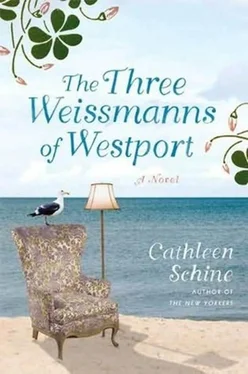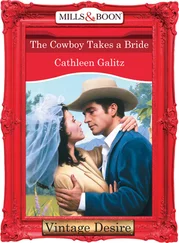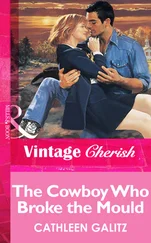Miranda said, "You're so literal minded."
And the two sisters continued down the street, arm in arm, affectionate and indulgent, each smiling a small, comfortable smile at her superiority to the other.
On leaving her stepfather's office, Annie had given Felicity Barrow a brave, friendly hello, yet she had never liked Felicity. Felicity had round, oversized eyes, bright blue eyes, like a child actor who knows how to act like a child. Annie respected her stepfather's colleague. She knew how hard Felicity worked and how much she had contributed to the company, but she knew of Felicity's accomplishments by way of Felicity. It was not that the woman boasted. Quite the opposite. She was modest to a fault, the fault being that she insinuated her modesty, deftly, into almost any conversation, proclaiming her insignificance and ignorance, thereby assuring a correction.
Even so, under other circumstances, Annie would have stopped for a more extended greeting, for Felicity's older brother was the distinguished novelist Frederick Barrow, and through Felicity's generous intervention he had been induced to speak at the library where Annie worked. It was a small, private, subscription library started in the nineteenth century by wealthy furriers hoping to help promote literacy and thus good citizenship among aspiring young men entering the trade. It was endowed with funds not quite sufficient to keep it going, and among her other duties as deputy director, Annie arranged readings there. They had become something of an event in the Upper West Side neighborhood where the library was located. The tickets were sold for twenty-five dollars apiece, and after a rocky start, they had gotten audiences of over two hundred people for three years running.
One of Annie's talents was convincing writers to participate. At first she had simply kept abreast of who had a book coming out and might therefore be eager to promote it. But after a few years, she began giving the authors a percentage of the take, something she had observed at readings she'd attended in Germany. It seemed to excite the writers when she handed them a wad of smooth, worn bills, far more than an honorarium check would have done. They were like children receiving shiny coins. Annie had no illusions about authors. On the one hand, she admired them, for they created the books she admired. But, too, she felt most of them were rather sad, desperate people who couldn't hold down a job, and she counted out the money into their open palms with the same expression she wore when tipping the doorman.
But even with the inducement of a pile of twenty-dollar bills, it was unusual for her to get a writer like Frederick Barrow to read at her library. He was not only revered and rich, he was also reserved, and he rarely appeared in public. Felicity's offer had been a welcome one.
Annie had first met Felicity one evening a year ago when Annie went to the suite of offices to surprise her stepfather and join him on his walk home. Joseph walked home every day, rain or shine, and Annie liked to join him sometimes. It was not far from his office to the apartment, eighteen blocks, it was on her way home, and that night had been a lovely, cool spring evening, the sunlight lingering and the finches warbling gloriously from the light poles.
The receptionist was not there when Annie stepped out of the elevator. Felicity, who was just leaving Joseph's office, appeared to be the only other person around, and Joseph introduced the two women. It was then that Felicity had offered up her brother. Annie, though excited at the prospect, did not take her seriously and forgot all about it. But a month later, an e-mail appeared in her inbox from Felicity with Frederick Barrow's phone number, e-mail address, and pledge that he would participate.
The reading promised to be a huge success. They had sent out the announcements, and one hundred tickets had been ordered already. Frederick Barrow himself, though he wrote turbulent, wrenching books, turned out to be as tranquil a man as Annie had ever met. They went for drinks to discuss the event, drinks somehow became dinner, and dinner led to after-dinner drinks at Bemelman's Bar. They walked together up Fifth Avenue past the closed museums and the dark forest of Central Park at night. They walked and walked in the windy night, quoting Shakespeare like undergraduates and holding hands.
Never, Annie thought, have I regretted an evening as a librarian less. This mood lasted for weeks. Then Frederick Barrow joined the library and began to use it for his research, which led to more lunches, more dinners, and considerably more quotation. Indeed, on the day that Annie and Miranda left their stepfather in tears and retreated to a cafe to drink tea, Annie was planning to have dinner with Frederick.
"He's so handsome in his author photos," Miranda said.
"They're not terribly recent. His hair is almost white now. I think writers should keep their photos up-to-date. When he does finally use a new one, it will be a terrible shock to his readers. They'll think he's been ill."
"Good God, Annie."
Miranda's cell phone gave a plaintive cry, and she checked a text message, frowned, and swore beneath her breath. "Where does he live, anyway?" she said as she typed into the cell phone. "These fuckers." She put the phone away. "So? Where?" It was important to Miranda that Frederick Barrow be a New Yorker. It would not do anyone any good if he lived in San Francisco or taught at the University of Iowa.
"He's been in Berlin for the past year-that's where I first got in touch with him."
"Oh, Berlin!" Miranda, in her enthusiasm for a city she found endlessly fascinating, forgot for a moment that she wanted Frederick to live nearby. "Wonderful."
"But I think he actually lives in Massachusetts. Cape Cod? He's been staying with his kids in the city."
Massachusetts was not bad. Miranda nodded in approval. She'd had a boyfriend in college who went to Harvard while she went to Barnard. There was a good train, and Miranda liked trains. A train felt fast, faster than a car, faster even than a plane, and the illusion of speed was almost as important to Miranda as was speed itself. She became bored and impatient easily, but had found that anything framed by a train window could hold her attention, as if the undersides and back ends and rusty corners of dying cities were episodes of a rough, rousing life flashing by. She had ended up detesting the Harvard boyfriend, Scarsdale Nick, as she used to call him, but the train had never disappointed her. No, Frederick Barrow in Massachusetts was not bad at all.
"He is still pretty good-looking," Annie said. "He wears nice old tweed jackets."
Annie's tone was serious and full of warmth. Miranda gave a snort.
"What?" Annie said.
"Ha!"
"You're crazy."
"I know what I know," Miranda said.
As the weeks wore on, the marriage mediation sessions began. Betty and Joseph went to an office oddly situated in Chelsea.
"Where did you find out about this woman?" Betty asked.
"Referral."
"This is a very dumpy office," Betty whispered. They had walked down the narrow stairs of a decrepit brownstone to what was the basement level. "This was called the English basement when they first started doing them in New York. Nineteenth century. Very Upstairs, Downstairs, don't you think? Do you remember when Annie hired a carpenter she found in the Village Voice classifieds? Did you find this woman in the Village Voice classifieds, honey? Those bookcases tilted terribly."
A small dumpy woman appeared at the door to an inner dumpy office. She had full, poorly cut salt-and-pepper hair. She was, Betty noticed, wearing space shoes.
"Are those back?" she asked the woman. "They were very popular in the fifties. Our dentist wore them."
The mediator did not smile. But she did hold out her hand and introduce herself. Her name was Nina Britsky. A matzoh-punim, Betty thought, feeling sad for her.
Читать дальше












